Co-Creating During the Pandemic: Lessons from Liberia
Cocreación durante la pandemia: Lecciones desde Liberia
Since signing up to OGP in 2011, Liberia has reiterated its commitments to transparencyAccording to OGP’s Articles of Governance, transparency occurs when “government-held information (including on activities and decisions) is open, comprehensive, timely, freely available to the pub... More and accountability on issues ranging from beneficial ownershipDisclosing beneficial owners — those who ultimately control or profit from a business — is essential for combating corruption, stemming illicit financial flows, and fighting tax evasion. Technical... More to budget transparency to openness in healthcare delivery. But driving this agenda forward has not been easy. While some of the challenges will continue to pose risks, our recent co-creation processCollaboration between government, civil society and other stakeholders (e.g., citizens, academics, private sector) is at the heart of the OGP process. Participating governments must ensure that a dive... gave us some important lessons on ways to keep stakeholders engaged during and after the pandemic.
The two most prominent challenges we faced during the process include:
- Institutional and systemic constraints. Often, it is the lack of political will to fight corruption that prevents open government initiatives in Liberia from becoming a reality. But even when the government shows commitment to address certain issues, such as sexual and gender-based violence (an OGP commitment), the lack of human and financial resources hinders our progress. Our local OGP Secretariat, responsible for coordinating efforts among different ministries and government agencies implementing Liberia’s action plan, is understaffed and underfunded, and the ongoing economic crisis is likely to limit the government further. To fill some of these institutional gaps, Accountability Lab Liberia (ALL), with funding from the World Bank, has been supporting the OGP forum throughout the co-creation process.
- Shift in government priorities. The focus of the government changed swiftly- and rightly so- to control the spread of the virus. The pandemic limited the ways in which civil society organizations (CSOs) could participate in the co-creation process and directly engage and continue to put pressure on the government. However, CSOs continued to put pressure on the government to enhance open government efforts on healthcare and publicly questioned the government about its handling of resources allocated for pandemic response and relief efforts.
Co-creation and consensus building. In the absence of face-to-face meetings, it was difficult to gauge key stakeholders’ interest and motivation; identify common goals; build trust and openness through dialogue and deliberation; and create a shared commitmentOGP commitments are promises for reform co-created by governments and civil society and submitted as part of an action plan. Commitments typically include a description of the problem, concrete action... to consensus building. To continue consultations and collect feedback on the draft action planAction plans are at the core of a government’s participation in OGP. They are the product of a co-creation process in which government and civil society jointly develop commitments to open governmen..., Accountability Lab and the local OGP multi-stakeholder forumRegular dialogue between government and civil society is a core element of OGP participation. It builds trust, promotes joint problem-solving, and empowers civil society to influence the design, imple... jointly decided on a course of action using digital tools and social media, which provided an alternative space to encourage stakeholders to interact.
- First, there was a need for a common digital space to collect comments and feedback. This was created through separate Google documents for each of the 11 commitments. The government Points of Contact (PoC)s and stakeholders working on a particular commitment were linked to the respective document where they could collaboratively draft the commitments.
- Second, the group needed a more interactive virtual space. For this, individual WhatsApp groups were created for those working on each of the commitments. Each group included the OGP Secretariat PoC, OGP Steering CommitteeThe Steering Committee is OGP’s executive decision-making body. Its role is to develop, promote and safeguard OGP’s values, principles and interests; establish OGP’s core ideas, policies, and ru... members, the OGP PoC as well as the Minister or Director from the respective ministry or agency, and CSO representatives working on a particular theme.
While the Google document acted as a repositoryAccess to relevant information is essential for enabling participation and ensuring accountability throughout the OGP process. An OGP repository is an online centralized website, webpage, platform or ... for all of the inputs, the WhatsApp group was a more dynamic medium to connect all the stakeholders in one place. All group members were then asked to validate and approve the changes on the Google document. Separately, the team also reached out proactively via Facebook messages to send quick reminders to group members and synthesized or responded to comments that needed specific attention. Using digital tools and social media, however, came with its own sets of challenges.
- Although digital tools seem readily available, they are not always accessible due to infrastructure constraints. Regular power outages and weak internet connectivity across Liberia makes online collaboration difficult. The cost of accessing the internet is also high, which limits participation. Nonetheless, it was useful to keep the members of the groups informed- even when they could not respond quickly- to maintain and build on existing relations. We also noted it is important to set aside funds to cover data costs when planning to engage using digital and social media tools.
- Some interactions need to take place in-person to build trust and generate political buy-in. This is especially important when engaging at high levels of government. The Lab managed to conduct one-on-one meetings maintaining social distancing protocols with some ministry officials to maintain relationships and ensure ownership at the highest levels of government. Even during a pandemic, key stakeholders require individual, in-person engagement to generate the buy-in needed for success.
Despite the challenges with any co-creation process – from insufficient resources to varying levels of technology – we need to recognize the opportunities an open and inclusive consultative approach to governance can yield. One of the key learnings for us is that while working virtually is challenging, there is still room to ensure the government is open and transparent. The challenge now as we move past the co-creation phase- and hopefully past COVID-19- is to ensure that implementation is as inclusive as possible.
Desde que se incorporó a OGP en 2011, Liberia ha reiterado su compromiso con temas relacionados con la transparencia y la rendición de cuentas, desde transparencia en beneficiarios reales hasta la apertura en la provisión de servicios de salud. Pero no ha sido fácil impulsar esta agenda. Aunque algunos de estos retos seguirán siendo importantes, nuestro más reciente proceso de cocreación nos enseñó importantes lecciones aprendidas sobre cómo mantener a los actores comprometidos durante la pandemia y después de ella.
Los dos retos más serios que enfrentamos durante el proceso fueron:
- Limitaciones institucionales y sistémicas. Con mucha frecuencia, la falta de voluntad política para luchar contra la corrupción impide que las iniciativas de gobierno abierto se implementen. Pero incluso cuando el gobierno está comprometido con ciertas causas, por ejemplo con la violencia de género (compromiso de OGP), la falta de recursos humanos y financieros debilita nuestros avances. Nuestro secretariado de OGP local, responsable de la coordinación de esfuerzos entre los diferentes ministerios e instituciones de gobierno que están implementando el plan de acción de Liberia no tiene suficiente personal ni recursos y la crisis económica seguramente seguirá limitando al gobierno. Para llenar estos retos institucionales, Accountability Lab Liberia (ALL), con fondos del Banco Mundial, ha estado apoyando al foro de OGP a lo largo del proceso de cocreación.
- Cambios en las prioridades de gobierno. El enfoque del gobierno ha cambiado rápidamente (y con razón) para controlar la propagación del virus. La pandemia ha limitado la participación de las organizaciones de la sociedad civil (OSC), además de su colaboración con el gobierno y la presión que ejercen sobre él. Sin embargo, las OSC han seguido presionando al gobierno para fortalecer los esfuerzos de gobierno en materia de salud y han cuestionado públicamente al gobierno por su manejo de los recursos asignados a la respuesta a la pandemia.
Cocreación y búsqueda de consenso. Debido que no se pudo organizar reuniones presenciales, fue difícil medir el interés y la motivación de los actores; identificar objetivos comunes, crear confianza y apertura a través del diálogo y la deliberación y establecer un compromiso común hacia la construcción del consenso. Para continuar con el proceso de consulta y solicitar retroalimentación sobre el borrador del plan de acción, Accountability Lab y el foro multisectorial de OGP local, de forma conjunta, idearon un procedimiento a base de herramientas digitales y redes sociales, en donde se ofreció un espacio alternativo para la interacción con actores.
- Primero, se identificó la necesidad de crear un espacio digital común para solicitar comentarios y retroalimentación. Esto se creó a través de 11 documentos de Google para cada compromiso. Los Puntos de contacto de Gobierno (PoC por sus siglas en inglés) y los actores que estaban trabajando en compromisos específicos tuvieron acceso al documento correspondiente para poder colaborar en el diseño de los compromisos.
- Segundo, el grupo necesitaba un espacio virtual más interactivo. Para ello, se crearon grupos de WhatsApp para cada compromiso. En cada grupo, se encontraba el secretariado de OGP, miembros del comité directivo, el PoC y el ministro o director de la institución correspondiente, además de los representantes de las OSC que trabajan en temas en particular.
En los documentos de Google se concentraban todos los aportes, pero los grupos de WhatsApp eran un medio más dinámico para conectar a todos los actores en un solo sitio. Se solicitó a los miembros del grupo validar y aprobar los cambios al documento. Además, el equipo se comunicó a través de Facebook, enviando recordatorios a los miembros de los grupos, sintetizando los comentarios y respondiendo los que requerían de atención. Sin embargo, las herramientas digitales y las redes sociales implican retos específicos.
- Aunque las herramientas aparentemente son de acceso inmediato, no siempre se tiene acceso a ella debido a limitaciones en la infraestructura. En Libera frecuentemente ocurren cortes a la electricidad y fallas en el servicio de internet, lo que dificulta la colaboración. Además, el costo del acceso a internet es alto, por lo que la participación es limitada. Sin embargo, fue útil mantener a los miembros de los grupos informados para mantener las relaciones, incluso cuando no podían responder inmediatamente. Además, fue importante asignar fondos a los costos de los datos.
- Para lograr la construcción de la confianza y la aceptación política, algunas interacciones tienen que ocurrir en persona. Lo anterior es de especial importancia cuando se trabaja con funcionarios de gobierno de alto nivel. El Lab logró organizar reuniones bilaterales presenciales (con distanciamiento social) con algunos funcionarios para mantener las relaciones y asegurar la apropiación a los más altos niveles del gobierno. Incluso durante la pandemia, los actores necesitan interacciones presenciales para lograr la aceptación que es necesaria para el éxito.
A pesar de los retos que implica cualquier proceso de cocreación, desde la falta de recursos hasta las diferencias en el acceso a la tecnología, tenemos que reconocer las oportunidades que implican los procesos consultivos y sus resultados en la gobernanza. Una lección aprendida fue que, aunque el trabajo virtual es un reto, aun hay oportunidades de asegurar que el gobierno sea abierto y transparente. El reto ahora es terminar el proceso de cocreación y esperemos que vencer al COVID1-9 para asegurar que la implementación sea tan incluyente como sea posible.
No comments yet
Related Content
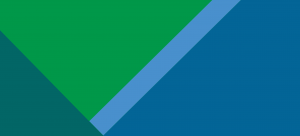
Domestic Resource Mobilization and Economic Recovery in Africa
Explore eight ways open government reform can help African countries recover from the immediate crisis and restore their progress towards achieving the Sustainable Development Goals.

Taking the OGP Co-Creation Process Online – Further Guidance
Some partners and resources for further support and information.
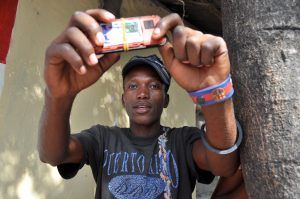 Challenges and Solutions
Challenges and Solutions
Online or Offline, Citizen Engagement Needs to Be Underpinned by Core Open Government Principles
Twaweza shares their unique approach for including citizens in the decisions that impact their lives and offers insights on what they've learned along the way.

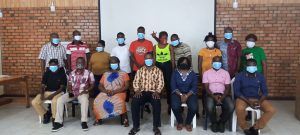
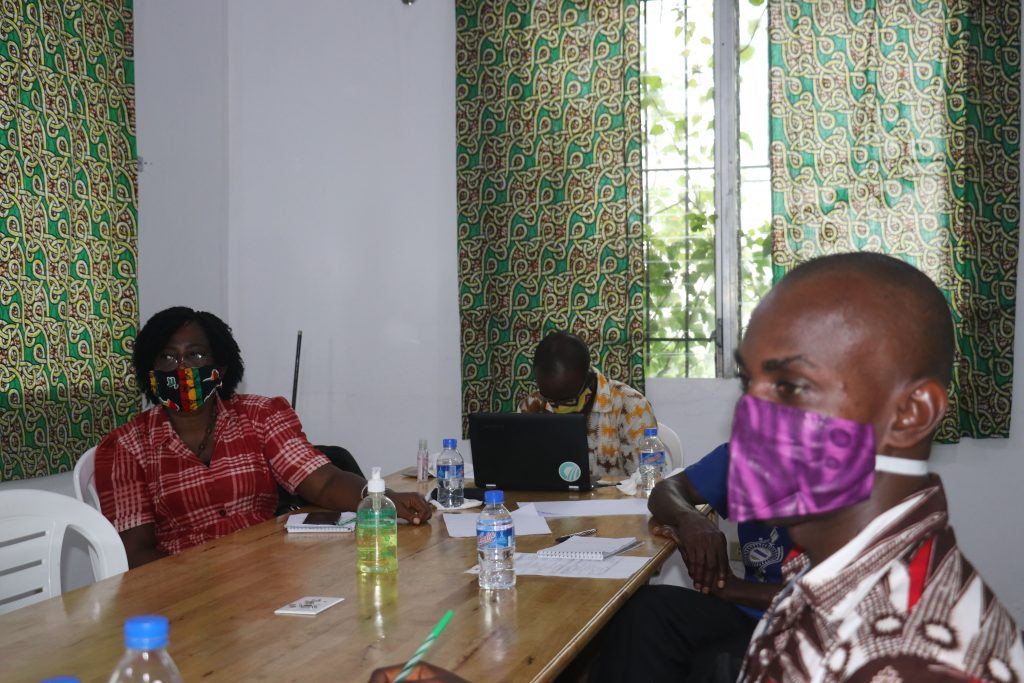
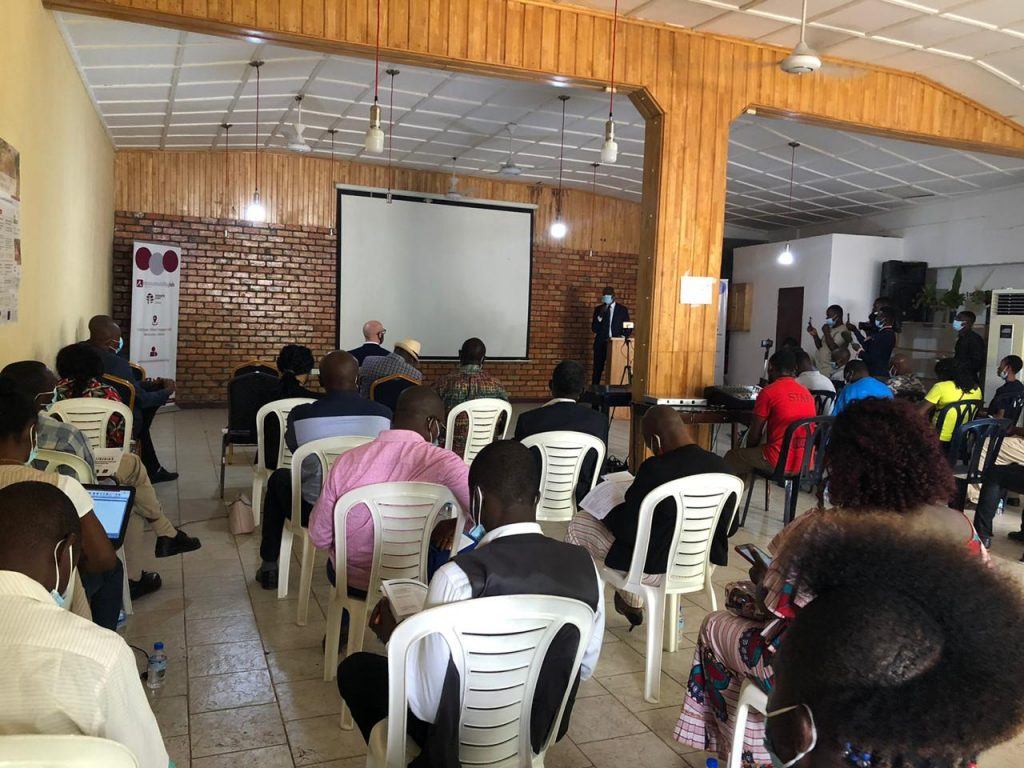
Leave a Reply